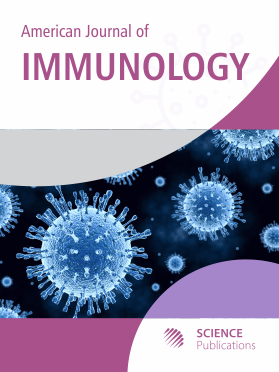The Effect of Lactobacillus Plantarum and Bacterial Peptidoglycan on the Growth of Mouse Tumors in vivo and in vitro
- 1 American University of Beirut, Lebanon
Abstract
Some members of the microbiota have been shown to be effective strategies for inhibiting tumor growth through stimulation of host anti-tumor immune responses. Anti-tumor immune effects were observed when Lactobacillus plantarum (Lp), a member of the gut microbiota, was used to treat colorectal cancer in mice. Moreover, constituents of bacteria, including peptidoglycan (PG), have been shown to exhibit tumoricidal effects. The aim of this study was to investigate the anti-tumor effects of Lp on serum levels of angiogenic and immunostimulatory cytokines in melanoma-bearing mice in vivo; as well as the effect of PG on the growth of mouse melanoma and breast cancer cells in vitro. Fifty C57BL/6 female mice were divided into two groups. Prior to tumor implantation, Lp was administered via oral gavage for 2 weeks to the experimental group. After receiving subcutaneous injections of B16F10 melanoma cells, Lp administration was continued once per week for 3 weeks to the experimental group. After the last bacterial administration, serum levels of Vascular Endothelial Growth Factor (VEGF) and Interleukin-12 (IL-12) were determined by ELISA. Additionally, mice from both groups were monitored for survival. Moreover, B16F10 melanoma and EMT6 breast cancer cells were incubated separately with two PG concentrations for 48 h and percent viability was determined. A significant decrease in the serum levels of VEGF and a significant increase in the serum levels of IL-12 were observed in the group treated with Lp Moreover, 20% survival rate was noted in the group treated with Lp in vitro, a marked decrease in the viability of mouse melanoma and breast cancer cells was observed 48 h post-incubation with PG. It appears that Lp possesses anti-tumor activity, by both stimulating the immune system and suppressing angiogenesis. Moreover, Lp appears to have a direct tumoricidal effect through PG.
DOI: https://doi.org/10.3844/ajisp.2017.201.208

- 4,430 Views
- 2,225 Downloads
- 22 Citations
Download
Keywords
- B16F10 Melanoma Cells
- EMT6 Breast Cancer Cells
- Lactobacillus plantarum
- Peptidoglycan
- VEGF
- IL-12
